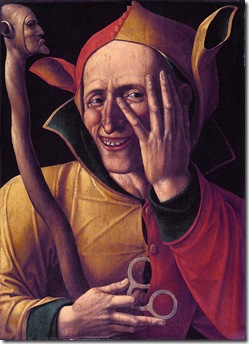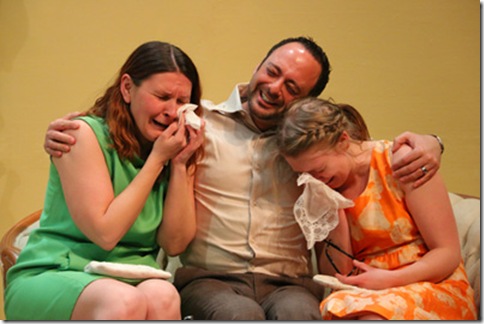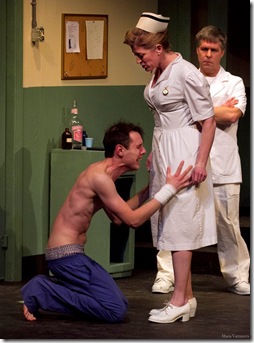Calendar Girls: Uneven characterization causes jerkiness, but show receives warm welcome on opening night

Calendar Girls
By Tim Firth
Kanata Theatre
Directed by Tania Carrière
Any production of Calendar Girls presents special challenges. The storyline, a slightly fictionalized version of true events at a Women’s Institute in northern England, is the basis of a 2003 movie starring Helen Mirren and Julie Walters. It is so well known, that there is little room for any surprises on stage. In addition, the concept — a group of mature women posing discreetly nude behind some protective covering to raise funds for charity — has since been adopted and adapted for numerous assorted fundraising ventures (including at least two in the Ottawa area).
Although the flash of bare flesh on stage for each of the six women who drop their robes for a few seconds is not the main focus of Calendar Girls, it is often the point of concentration of pre-show publicity and audience awareness. The main goal of the script is to focus on the bonding and friendship among the group. But because the key photography/nude scene closes the first act, director and cast are likely to have difficulty in maintaining momentum through Act II. The attempts to fill in the women’s back-stories have limited success and the falling out between the two women behind the calendar project is too under-written to be entirely credible. …






